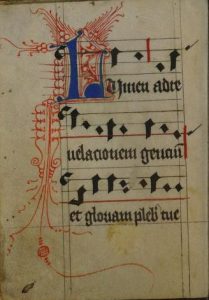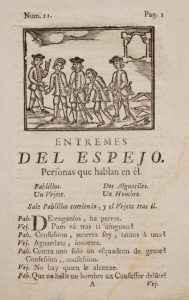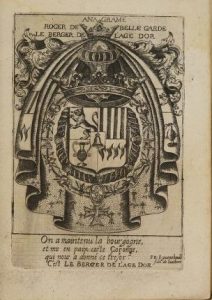
Through the generosity of Arcadia, a charitable fund of Lisbet Rausing and Peter Baldwin, the Sheridan Libraries is pleased to announce that we have digitized almost 2500 books, manuscripts and ephemera spread across four of our signature collections: The Women of The Book, the George Peabody Library, Comedias Sueltas (Golden Age Spanish plays), and the Bibliotheca Fictiva. The scans are now available to all through the Internet Archive (IA) and we encourage you to explore on your own.
We are particularly pleased that we were able to work with IA to develop several new protocols for scanning and for the digital presentation of rare books, including invaluable image over-cropping and full scanning of bindings. This allows us to represent the materiality of the book more accurately in a digital environment, and are practices that will be adopted by IA in future projects.

The Women of The Book collection is the world’s most extensive gathering of primary research items dedicated to the spiritual lives of European and South American women: nuns, beatae, and female mystics and saints, produced between ca. 1450-1800. The books, manuscripts, and ephemera were produced in convents, which were “important centers of reading, instruction and writing” for women in Western Europe and Latin America. As such, we wanted to do more than just scan the materials so we used this opportunity to enhance existing Wikipedia entries on historical women represented in our Women of The Book collection, adding footnotes linking back to digitized versions of their works available via the Internet Archive. The selected list below represents our most notable contributions in multiple languages.
Gertrude the Great: footnotes 10, 16, and 17
Louise of France (1737-1787): footnotes 19, 20, 27, and Bibliography
Louise de France: footnotes 5, 6, 13, and Bibliographie

The George Peabody Library scans drew from a set of collection strengths at the Peabody Library that are rare, unique, or count among the most frequently used items for research and teaching. These include : (1) religious history, particularly of the Protestant and Catholic Reformations; (2) Victorian illustrated “snapshots;” (3) several popular nineteenth-century collecting interests that helped shape the Peabody Library during its formative decades (travel, technology, and exploration); and (4) a recently acquired major addition to the libraries’ Comedias sueltas theater collection.
The digitization of the Sheridan Libraries’ Comedias sueltas collection has enabled readers from around the world to consult JHU’s remarkable gathering of Spanish drama, which now stands as one of the largest of its kind outside of Spain. Furnishing free cover-to-cover access to over 600 rare exemplars of early modern Spanish theater, during a period when the George Peabody Library remained closed to the general public due to Covid pandemic, has also facilitated the work of those engaged in the study of the sueltas tradition at Johns Hopkins University.
In 2012, Special Collections acquired one of the largest collections of literary forgery, the Arthur and Janet Freeman Collection of Literary and Historical Forgery, also called the Bibliotheca Fictiva. We were able to scan a portion of the collection during the first grant; we have recently gotten additional funding from Arcadia to complete scanning of the entire collection. Stay tuned for more information on that collection!
